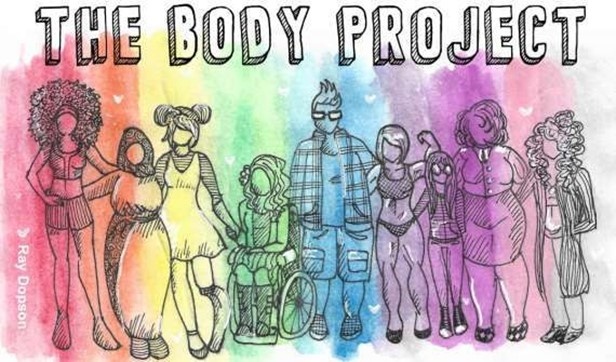Description
The Body Project
Note: This Opportunity is only available to those who have already completed 'The Body Project' as it is a peer lead group based on the 'Train the Trainer' model.
Participants who complete all sessions are qualified to lead groups themselves (Check out our Participant Opportunity if you want to join the groups).
What is it?
- The Body Project is a dissonance-based body-acceptance intervention created by Dr Eric Stice of Stanford University to help high school and college-age women resist sociocultural pressures to conform to the thin ideal and reduce their pursuit of thinness.
- A reduction in thin-ideal internalization should result in improved body satisfaction and improved mood, reduced use of unhealthy weight-control behaviours, and decreased binge eating and other eating disorder symptoms.
- The conceptual basis for the Body Project is that if girls and young women voluntarily argue against the thin ideal, this will result in a reduced subscription to this ideal and to consequent decreases in eating disorder risk factors and symptoms.
- While The Body Project was initially developed with female participants in mind, it can also be adapted for males (UL Counselling service have adapted scripts that are gender neutral).
What does it involve?
- Facilitators will engage in 4, 1 hour group sessions with peers about critiquing the "appearance ideal" result in cognitive dissonance among those who originally endorse this apperance ideal, which causes them to reduce their subscription to the apperance ideal.
- A minimum of 6, or max of 10/12 is required to run the session.
- This intervention involves a series of verbal, written, and behavioural exercises in which the students critique this appearance ideal.
- Theory to Practice Link: Theoretically, the act of publicly critiquing the thin ideal results in cognitive dissonance among those who originally endorsed this ideal, which causes them to reduce their subscription to the thin ideal.
How will you be trained to facilitate?
- Based on the "Train the Trainer" model. Participants who complete all sessions are qualified to lead groups themselves.
- Potential facilitators will be trained by Dr Lucy Smith to conduct the relevant exercises and material.
Why is the group run? (Benefits to Group Participants)
- The Body Project has repeatedly been shown to effectively:
- Reduce body dissatisfaction
- Reduce Negative mood
- Reduce Unhealthy dieting
- Reduce Disordered eating
Is training provided?:Yes
Tasks that the volunteer(s) will be expected to undertake:
- Attend facilitator training provided by the UL Counselling & Wellbeing Service.
- Co-facilitate small group sessions (4 per semester) with another trained facilitator.
- Guide structured discussions and activities based on The Body Project programme.
- Encourage open, respectful conversations about body image, media influence, and self-acceptance.
- Support participants in completing reflective exercises during sessions.
- Help create a safe, inclusive, and non-judgemental space for all attendees.
- Liaise with the supervising psychologist/UL Counselling staff for guidance and feedback
- Promote confidentiality and adhere to the boundaries of the facilitator role.
Benefits of Volunteering:
What are the Benefits to You as a Facilitator?
- Earn 16 PVA hours for your training and delivery of the group [4 Hours Training, 4 Hours completing programme homework after provided training, 8 hours facilitating semester groups]
- Gain experience facilitating an evidence-based intervention.
- Build key skills in peer support, reflective dialogue, and group leadership.
- Enhance your CV and graduate/professional applications, especially if pursuing psychology, health, or education.
- Contribute to a meaningful campus-wide initiative promoting body acceptance and well-being.
Details of time commitment needed for role:
16 Hours per Facilitator - Facilitators will run the groups once a week for four weeks (1 hour each) per semester.
Minimum time commitment per week:
1 hour p/week
Additional screening required for this role::
Applications require previous participation in 'The Body Project' group.
Sustainable Development Goal:

Hei:
UNIVERSITY OF LIMERICK

![]()
